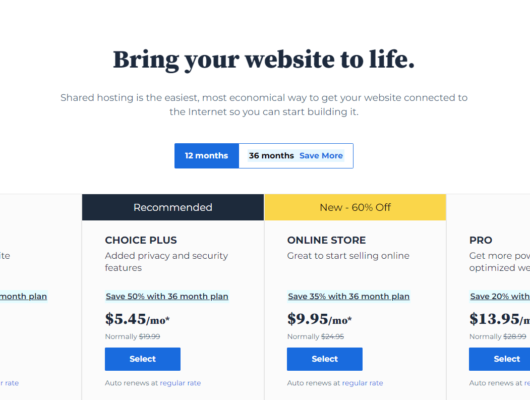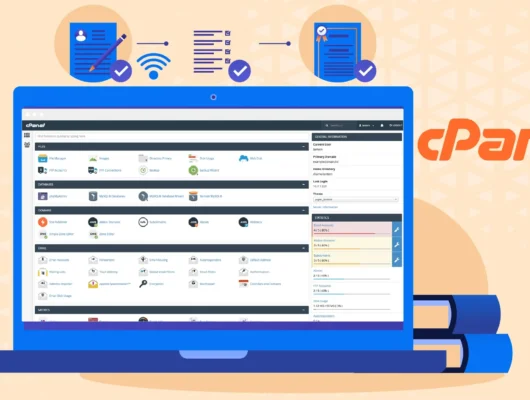In today’s digital age, smartphones have become an indispensable part of daily life.
As more consumers turn to their mobile devices for shopping, businesses must invest in mobile commerce hosting to deliver fast, secure, and seamless experiences.
This article explores the key elements of mobile commerce hosting, highlighting its significance and providing insights into optimizing the mobile shopping journey.
What Is Mobile Commerce Hosting?
Mobile commerce hosting refers to the infrastructure and technologies that support online stores optimized specifically for mobile users.
Unlike traditional web hosting, it goes beyond responsive design to enhance speed, security, and user experience—ensuring a seamless shopping experience across mobile devices.
Key Aspects of Mobile Commerce Hosting
1. Mobile Optimization and Responsive Design
A successful mobile commerce platform must be optimized for various screen sizes and resolutions.
Responsive design ensures that your store looks and functions flawlessly, whether accessed on a smartphone or tablet.
A visually appealing and intuitive interface enhances user experience, reducing bounce rates and increasing conversions.
2. Fast Loading Speeds and Performance
Speed is critical in mobile commerce. Slow-loading pages frustrate users and lead to abandoned carts. To optimize performance, businesses should:
- Compress images for faster loading.
- Use content delivery networks (CDNs) to distribute content efficiently.
- Implement lightweight coding to improve responsiveness.
3. Secure Transactions and Data Protection
Security is a top priority for mobile shoppers. A reliable mobile commerce hosting solution should include:
- SSL encryption to protect data.
- Two-factor authentication (2FA) for secure logins.
- Compliance with industry security standards for mobile payments.
Establishing trust in transaction security is key to customer confidence and retention.
4. User-Friendly Navigation and Streamlined Checkout
Mobile shoppers value convenience. A well-optimized mobile commerce site should feature:
- Simple, intuitive menus.
- A one-click checkout option for faster transactions.
- A clutter-free design that enhances usability on smaller screens.
Making navigation effortless ensures a better user experience and boosts conversion rates.
5. Seamless Integration with Mobile Payment Gateways
Supporting multiple mobile payment options is crucial for a frictionless checkout experience. Businesses should integrate with:
- Mobile wallets (Apple Pay, Google Pay, Samsung Pay).
- Credit/debit card processors with mobile-friendly interfaces.
- Buy Now, Pay Later (BNPL) services to offer flexible payment options.
A diverse range of payment methods enhances convenience and improves customer satisfaction.
6. Leveraging Push Notifications and Personalization
Mobile commerce hosting enables businesses to engage customers through push notifications, sending real-time updates on:
- Special offers and discounts.
- Order updates and shipping alerts.
- Personalized product recommendations based on browsing behavior.
Personalization enhances customer engagement, making shopping experiences more relevant and enjoyable.
7. Consistency Across Multiple Platforms
While mobile commerce focuses on handheld devices, maintaining a consistent user experience across desktop, tablet, and mobile is essential.
Customers often switch between devices before making a purchase, so seamless transitions across platforms reinforce brand identity and customer trust.
8. Analytics for Continuous Optimization
Understanding mobile shopper behavior is key to refining the shopping experience. Analytics tools allow businesses to track:
- Customer engagement and conversion rates.
- Performance metrics such as load times and bounce rates.
- Shopping patterns and preferences.
Using data-driven insights helps optimize mobile commerce strategies, ensuring long-term success.
Read more about Power of Multi-Channel Retail Hosting…
Conclusion
Investing in mobile commerce hosting is no longer optional—it’s essential for businesses aiming to thrive in a mobile-first world.
By prioritizing speed, security, user experience, and mobile-specific features, businesses can create a seamless and engaging shopping experience that meets the demands of today’s consumers.
As mobile commerce continues to grow, those who adopt robust hosting solutions will be well-positioned to capitalize on the expanding digital marketplace.






